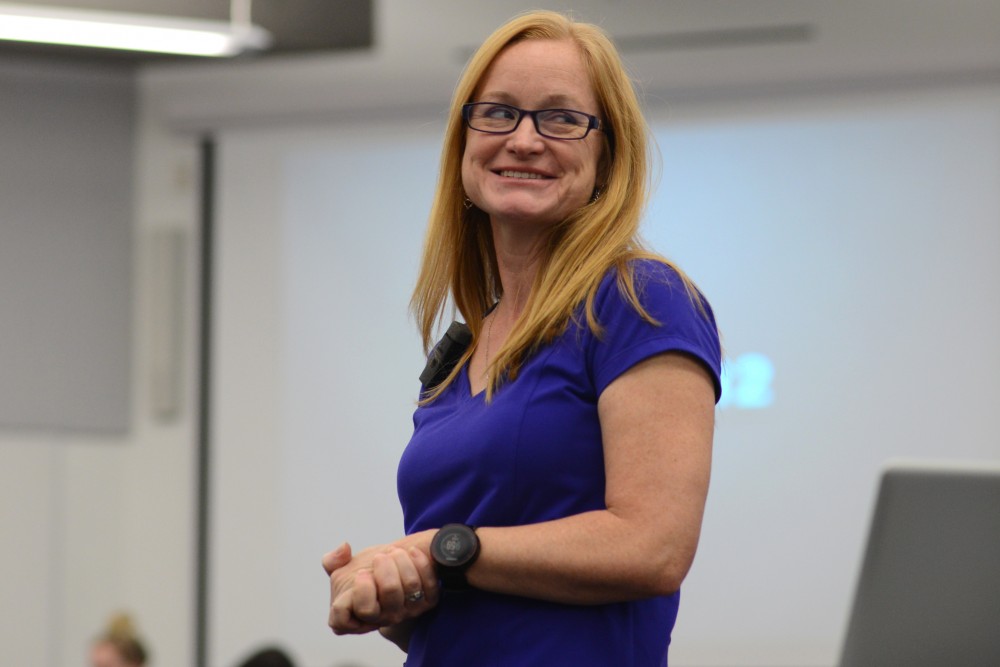University of Minnesota researchers quantified the idea that political and group identities can sway students’ acceptance of climate change and other politically charged scientific concepts.
A November study titled “What Determines Student Acceptance of Politically Controversial Scientific Conclusions?” found that student beliefs in human-caused climate change, evolution and vaccination safety can change over a semester as students spend time in biology classrooms.
Four University researchers collected data on more than 3,000 University students during fall 2014 and spring 2015 introductory biology courses.
The data showed politically liberal students are more likely to accept the three controversial topics, and identifying with a group is the most telling predictor of student opinion.
“It’s not being conservative… that causes students not to believe in climate change. Instead, it’s the degree to which you feel like climate change is a belief held by people like or unlike you,” said JD Walker, co-author and researcher with the Center for Educational Innovation at the University.
The research showed, on average, students grew to accept all three topics over the semester while participating in the biology classes.
“I think the challenge for us as educators is to figure out a way to let students maintain their identity while also learning science,” said Sehoya Cotner, associate professor in Biology, Teaching and Learning, who co-authored the paper.
Cotner participated in a College of Biological Sciences event on Dec. 6 about the “rejection of science” as part of the college’s “The Petri Dish” event series.
“When I first started teaching climate change, I thought if I just teach them the facts, they’ll clearly accept them, and I can’t do that. That doesn’t seem to work,” said Deena Wassenberg, associate professor in Biology, Teaching and Learning who also co-authored the paper.
Cotner and Wassenberg said as a result of the study, they hold classroom discussions about the link between identity bias and science, helping students understand factors that can sway their own biases.
“I think a lot of the times a little self-discovery can go a long way,” Cotner said.
Gabriel Chan, associate professor with the Humphrey School of Public Affairs who teaches a master’s class on climate change policy, said the study’s topic is not a new realization.
“It’s not so much a lack of understanding of science, but that your belief on this issue is so much tied to who you think you are as a person,” Chan said.
Chan, who holds a Ph.D. in public policy, said climate change is a deep-rooted partisan issue in the U.S.
“I think that’s kind of one of the striking things about just the United States compared to other countries,” he said. “I think probably one of the strongest recommendations that can come out of this work is we need more diversity in who speaks in the classroom.”
The nearly 400-member Environmental Student Association at the University does not hold a political affiliation, said sophomore Malcolm Gregory, public relations director for the student group.
“The people involved in our group, despite political association, I think understand the… necessity of going after and fixing some of the climate issues we’re facing,” Gregory said.
The group plans to hold its annual conference, EcoU, this February, with “the politics of environmentalism” as the topic, he said.
Gregory added that the group chose this year’s topic in relation to recent politics.
Victoria Lopez, co-chair of Health Students for a Healthy Climate and first year master’s in healthcare administration, said her student group holds events to encourage students to fight climate change.
“I try to find that common ground,” Lopez said of speaking with those who were on the fence about climate change. “I obviously don’t think I changed their opinions overnight, but there was… a respectful discourse.”
Correction: In the Dec. 7 print edition of the Daily, the headline of this article misclassified the research. The biology classes were found to have changed scientific views.








